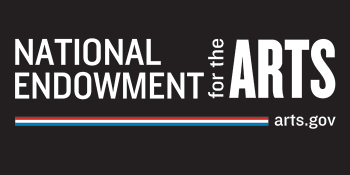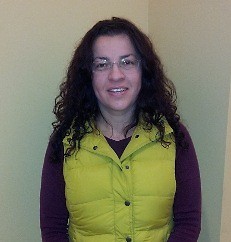“I truly believe that we all have a purpose,” said Ana Doonan when asked about life's twists and turns leading to her current role at LINC Community Revitalization. The organization, whose mission includes revitalizing neighborhoods through authentic engagement, is a perfect fit for Doonan.
“As I go to bed, I’m thinking about work,” she said. “In my dreams, I’m fighting, I’m working—I’m probably just as tired or more tired from my dreams than I am from real life.”
Originally from Venezuela, Doonan and her six sisters saw community engagement in action from an early age. Her mother, a nurse, and her father, a coffee grower, were both committed to “investing themselves and their resources” in their rural community.
Doonan pursued studies in Political Science in Venezuela before coming to the United States, where she received degrees from both Central Michigan University and Grand Valley State University. Love of her family and her native country kept her “hopping back and forth” between Venezuela and the United States for a while, but the political climate in Venezuela clinched her decision to remain in her adopted home. Wherever she is, working for a worthy cause has always been her focus.
“For me, to serve means doing everything you can to make a difference. I believe that my call is to do something to make a difference—to leave something behind, to not just be a passerby.”
A series of internships paved the way for Doonan to become involved in the community and to learn about Grand Rapids. She met Jeremy DeRoo, Co-Executive Director at LINC, and started an internship in Grants Administration. A few years later she became Director of Neighborhood Services, a role she still holds today. She has overseen the expansion of LINC's programming as well as an increase in team members from one and a half to nineteen in just two years.
Literacy is a foundation of LINC's work, particularly through the LINC Opportunity Center (LOC), which helps people realize their potential, and Believe 2 Become, which focuses on providing the spaces and the opportunities for parents to take on a more active role in the lives of their kids, in their communities and in the schools.
Doonan remembers her parents being very involved in her education despite not having had all the information or resources they needed. “For them, education was the key.”
For Doonan, this motto holds true everywhere. When considering the fact that minority communities constitute the majority of GRPS students, she says we have to continue to instill this message.
“The more you learn, the better you are going to be able to compete and to participate—in life, in society, in education. It gives you an edge,” she says.
Doonan stressed the importance of understanding the contexts of the populations LINC is serving. For instance, LINC serves many Latinos, many of whom do not speak, read or write Spanish because they come from indigenous populations and have different dialects and languages.
Reaching out to these first-generation immigrants should be a priority, she said. While she believes it's important for individuals who are new to a country to learn the dominant language, she also sees the necessity of helping them navigate the available resources in a positive way.
“Not everyone comes from the same circumstances. We’re talking about people who are running away from civil war, persecution and many other things. It’s a matter of social justice to make sure we’re serving them,” she says.
Doonan cites awareness and outreach as key issues to focus on in improving literacy. In addition, she says we need to use our resources more effectively in order to align our work and to serve those populations that are in need. Collective impact and healthy partnerships are imperative to improving literacy.
“We need a strong, genuine and long-term commitment to serving, not just saying it, like diversity—not just wanting the perfect picture to put on your website or newsletter. You have to mean it,” says Doonan.
She can't say for sure what the future holds, but her vision is unwavering.
“I truly hope that the investment that we’re making in the community will have some results: that we’re able to eliminate the achievement gap and increase literacy in Kent County," she explains. "I hope for gains in academic success, in parent engagement and in stabilizing the community that we’re serving.”
The Rapidian, a program of the 501(c)3 nonprofit Community Media Center, relies on the community’s support to help cover the cost of training reporters and publishing content.
We need your help.
If each of our readers and content creators who values this community platform help support its creation and maintenance, The Rapidian can continue to educate and facilitate a conversation around issues for years to come.
Please support The Rapidian and make a contribution today.


